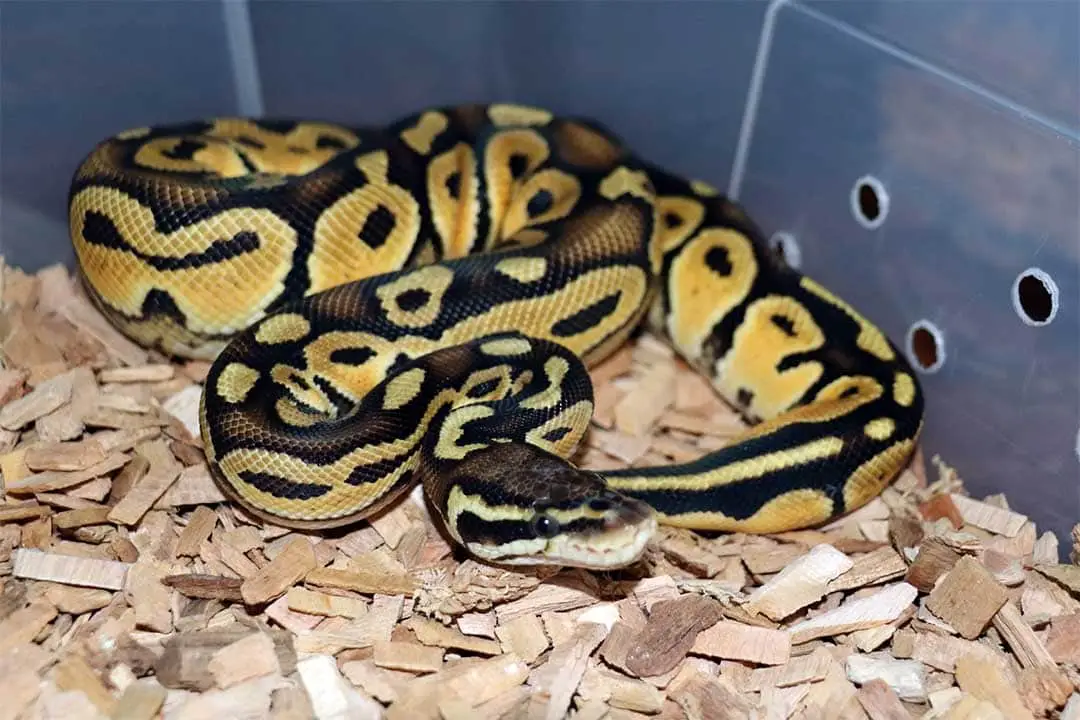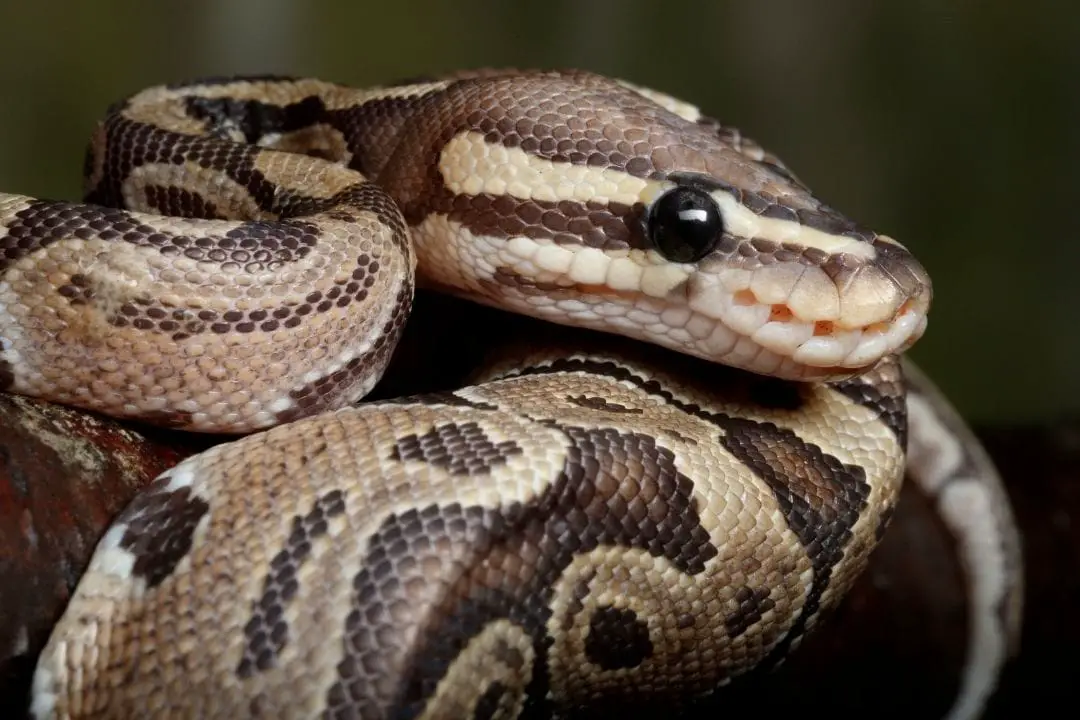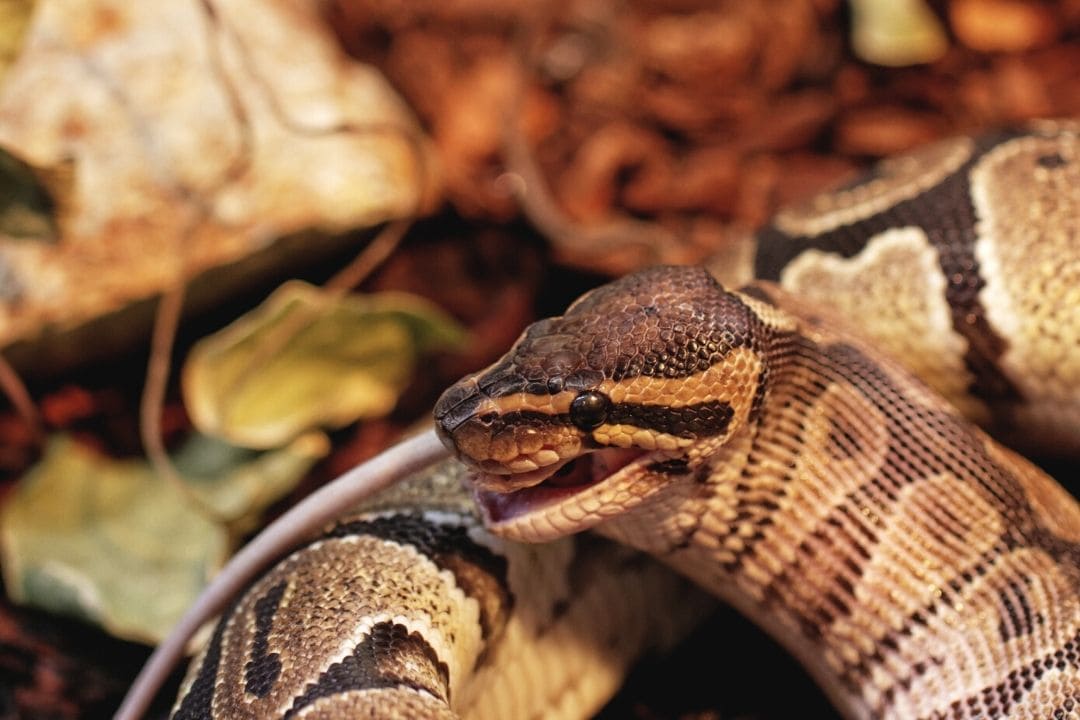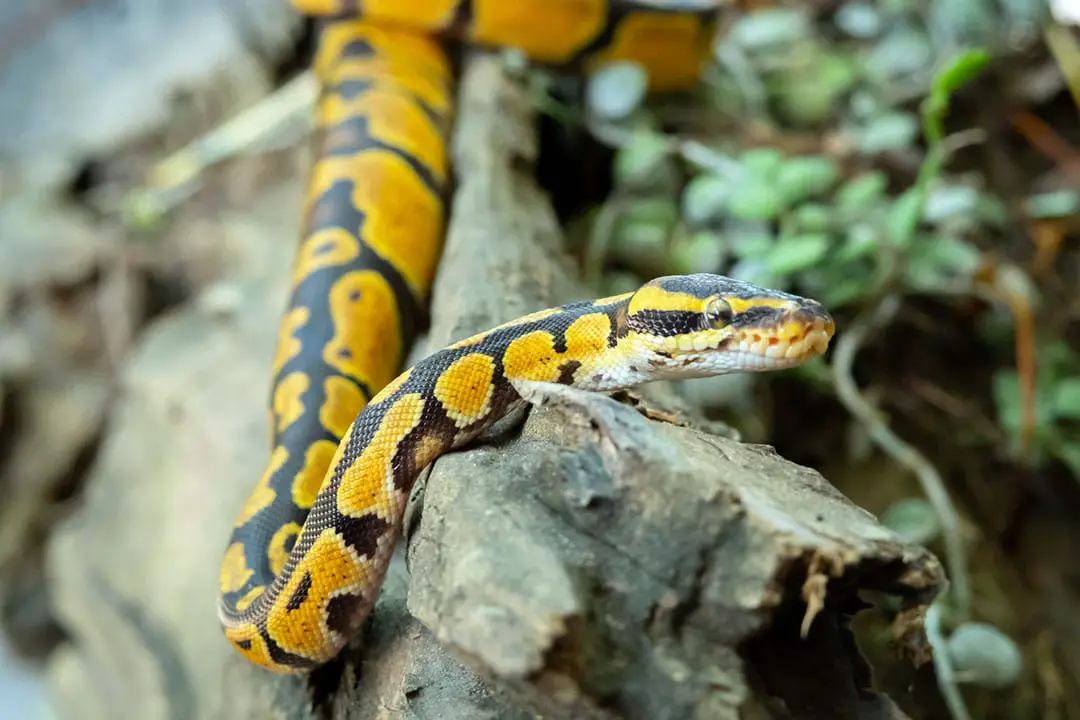Ball pythons or royal pythons (Python regius) are very popular snakes in the pet trade. you may be wondering about temperament and whether ball pythons get aggressive.
As a whole, ball pythons are not aggressive snakes. A well-fed and cared-for snake isn’t typically aggressive. An aggressive ball python is typically a hungry, sick, or stressed snake. If your snake is suddenly aggressive, it may need veterinary care.
Why Your Ball Python is Acting Aggressive
If your ball python is acting aggressive and snapping, you need to figure out why it is acting this way. These snakes are not naturally aggressive, so it is more likely that the snake is either hungry or defending itself.
Aggressive bites are a feeding response. The snake will try to hang on and wrap around what it has bitten since it thinks it has food. A hungry snake may strike at anything warm, and that includes your hand.
If you notice your snake is biting aggressively or actively looking for food, make sure you are feeding the snake properly. A growing snake may need to be fed larger prey. Your snake may also have a higher metabolism and need more frequent feedings.
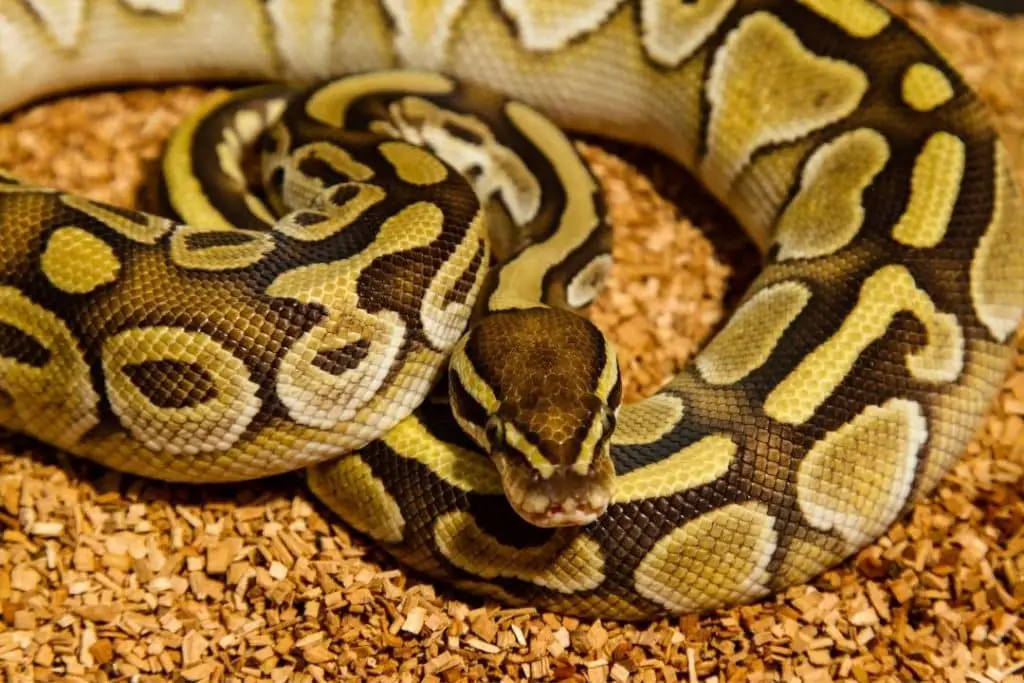
Everything you need to know about caring for Ball Pythons in captivity:
Read our Ball Python Care Sheet (Complete Setup & Guide)
Defensive behavior is typically mistaken for aggression in snakes. A defensive ball python may hiss, puff up its body, curl into an “s” to strike, or even bite.
Most snakes will try to hit you with their snout first to drive you off. They only bite if the snake feels that bumping you or another predator won’t help. A defensive bite is brief and the snake will release you immediately.
Defensive behavior is common in newly acquired snakes and babies. They need to learn that you aren’t a threat.
Stressed or sick snakes will also lash out. If you handle your snake more than 3 times a week, you may need to give your snake a break. Ball pythons are shy animals and too much attention will make them defensive. Leave the snake alone aside from basic maintenance and cleaning so your snake can relax.
A snake that is getting ready to shed will typically be more defensive. Their eyes will cloud and their sense of smell becomes duller. This means their two main ways of identifying potential threats aren’t working.
The snake will be more defensive since it feels vulnerable. Snakes that are feeling exposed will also be more defensive.
Ball pythons prefer to escape if they can manage it. If the snake feels cornered, it will lash out to defend itself. Offer more hides and if your enclosure is clear on more than one side, try to cover it so your snake feels less exposed.
Fill the enclosure with greenery, branches, and other clutter so it feels like it has hiding places. Remember, snakes are not into minimalism. Snakes on a poor substrate will also be more stressed.
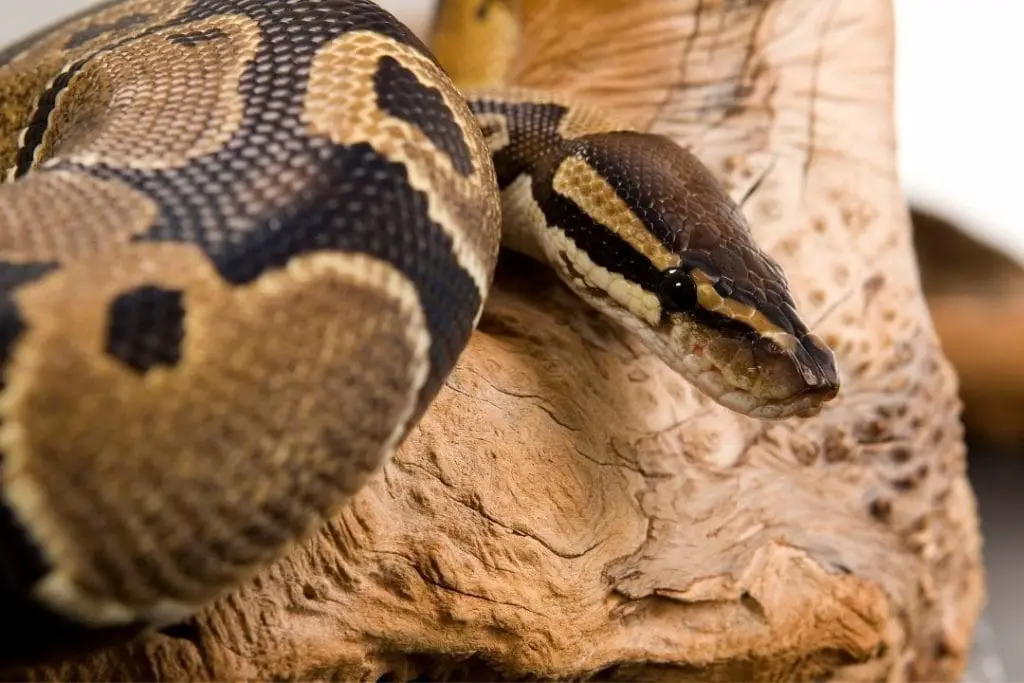
For instance, reptile carpet isn’t an appropriate substrate for a ball python. This study was examining whether rack systems were actually the best way to house ball pythons.
They noted what behaviors captive snakes exhibited when given the opportunity. Most animals were happy to burrow and climb when given the opportunity.
They also exhibited fewer attempts to escape. Make sure your snake has enrichment as well as proper conditions like temperature and humidity.
Ill or sick snakes can also become defensive. If the animal is in pain or feeling vulnerable, it may lash out. Listen for signs of wheezing or unusual respiration.
If your snake is producing a lot of mucus or breathes with its mouth open, it may be sick. Look for things like a pink belly or other color changes. Also, be sure to look for any potential injuries.
If your snake has an infected wound, it will be in pain. A fall or scraping itself on something sharp can cause pain. Make sure the enclosure is safe by feeling any decorations for sharp areas.
Ball pythons do have scales, but they can still be cut or injured. A good layer of substrate will also help cushion falls. Be sure to keep it at least 4 inches deep and make sure it retains humidity.
My Snake Still Seems Aggressive
If you have checked over the enclosure and the animal and still can’t find a reason why it is biting, you need to take your snake to a reptile vet. Find someone who has treated snakes and ideally ball pythons.
You might have missed some signs and the vet can help figure out the problem. Remember, any big change in behavior from an established animal is cause for concern. If your snake is new to you, it may just be its personality. Wild-caught animals are frequently more defensive than captive-bred animals.
It could also be its personality.
All snakes are individuals that have their own preferences. Some snakes may just be naturally more likely to bite. If your snake has a clean bill of health and is settled in a good enclosure, then your snake may just be a natural grump.
You can try handling to see if it will calm down, but it may never be fully tame. Snakes are not domesticated animals like dogs or cats. They tolerate humans, but they will never be cuddly nor are they capable of higher understanding or affection.
Summary
Ball pythons are typically not aggressive snakes. If your snake is acting aggressive, there is likely something wrong that you need to fix. If you have questions, be sure to leave them below.
If you own ball pythons and have any insights on why a snake may be biting or otherwise defensive, please leave your thoughts in the comments.
